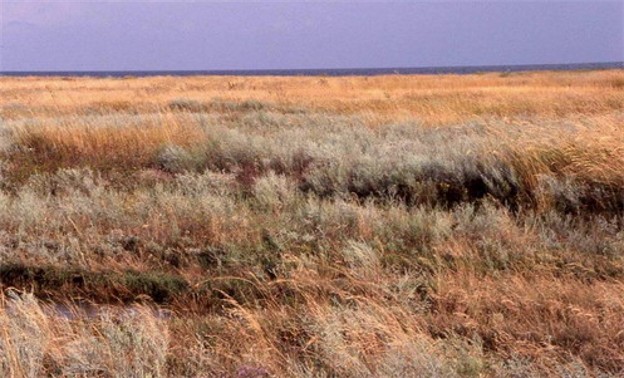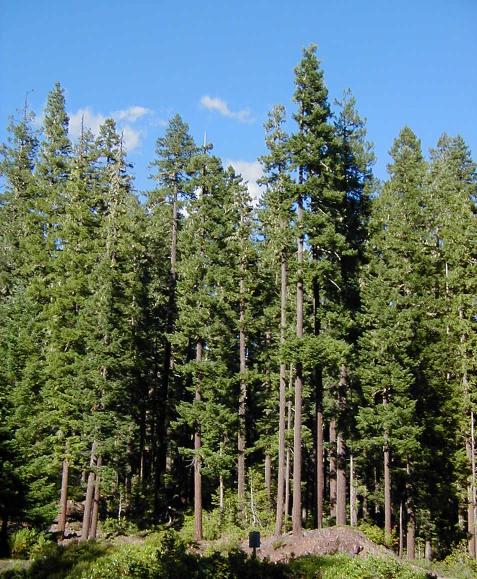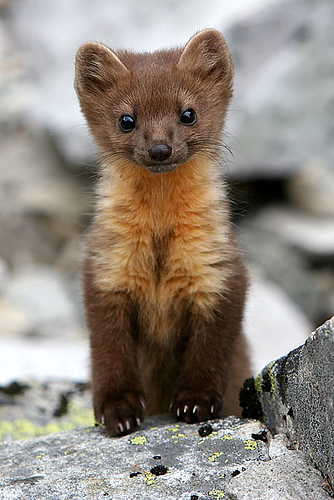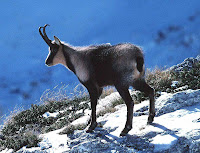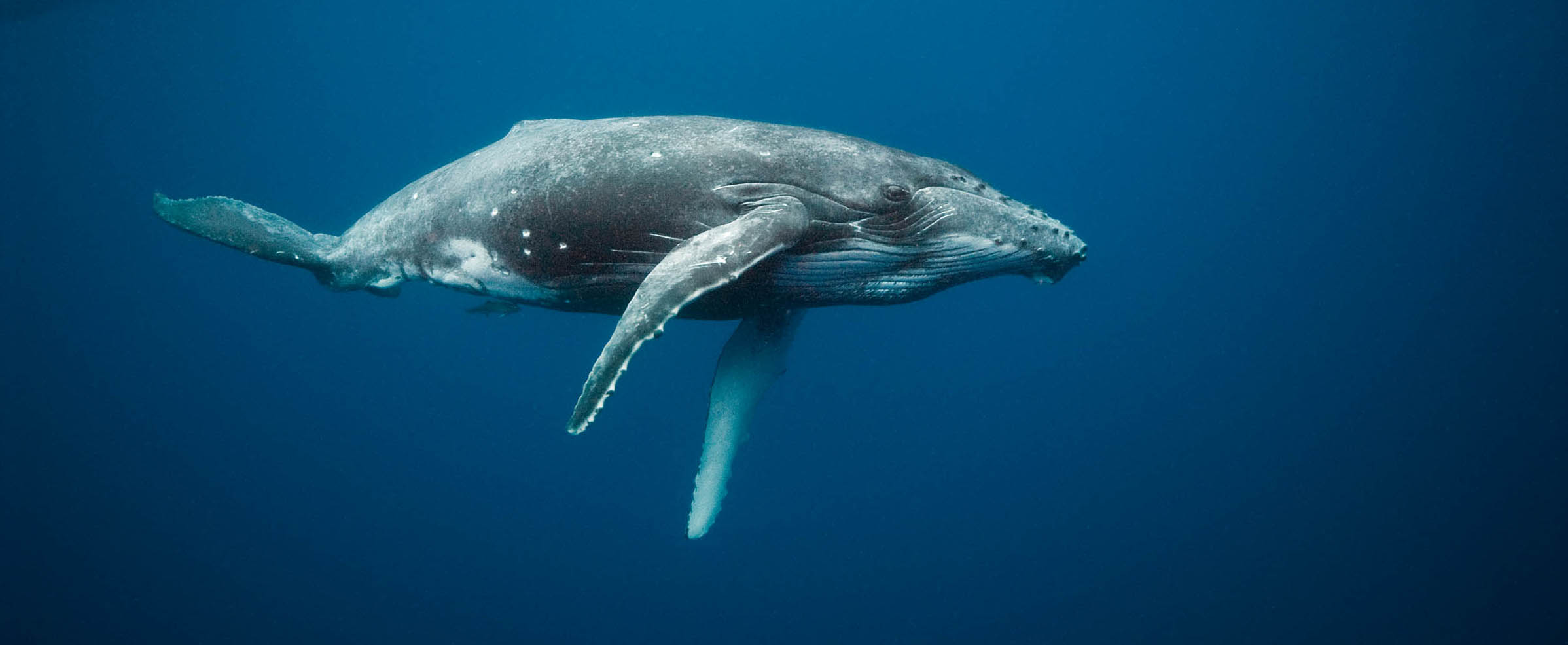Hi everyone, here's all the new vocabulary that I have learnt during this Third Geography Unit. It is about population.
BIRTH RATE: Number of births that take place in a population over a year. It is calculated by dividing the number of births in an area over a year by the total population:the result is multiplied by one thousand.
DEATH RATE: Number of deaths that take place in a population over a year. It's calculated by dividing the number of deaths in an area over a year by the total population and multiplying the result by one thousand. The death rate is expressed as a number per thousand.
NATURAL INCREASE: The number of births minus the number of deaths. The rate of natural increase(RNI) is the birth rate minus the death rate. It is expressed as a percentage(%). It can be calculated by dividing the natural increase by the total population and multiplying the result by 100.
INFANT MORTALITY RATE: Number of deaths of infants under 1 year dividing the number of births in a year, per 1000.
LIFE EXPECTANCY: Average years that one person may expect to live. I also shows welfare and economic and social status of a country.
BIRTH CONTROL: Allows to prevent pregnancy.
DEPENDENT POPULATION: The age groups of 0-14, and over 60 years of are called dependent population.
DEPENDENCY RATIO:Show the number of dependence people aged zero to 14 and over age of 65.
FAMILY PLANNING: Controlling the number of children in a family and the periods of time between their births.
POPULATION PYRAMIDS/AGE-GENDER STRUCTURES: Diagrams consisting of bar graphs that depict the distribution of the population a at a particular time and location,according to the groups of gender or age.
REPLACEMENT RATE: Percentage of workers pre-retirement.
FERTILITY RATE: Number of live births by the number of women ages 15-49 in a given year per 1000.
AGEING POPULATION: When the median age of a country increases the life expectancy and declines the fertility rate .
POPULATION DISTRIBUTION:describes the way that people are spread out across the Earth’s surface.
POPULATION DENSITY: Number Of People In an Area / Size of Area.
MEDC: More economically developed country.
LEDS: Less economically developed country
OVERPOPULATION: There is too much people.
UNDERPOPULATION: There is less population than is normal.
This is my English portfolio where I post new vocabulary and expressions, my projects and everything releated with Bilingual Section.
Sunday, 18 December 2016
SELF-ASSESSMENT
Hi there, we are finishing first term so here's my Self- Assessment.
I think my English has improved a lot during this term because I've learnt a lot of new vocabulary(school exchanges, films...) expressions that I didn't know before...
I loved the way Cristina taught English because I had a good time during classes and I didn't get bored at all. Each day we did something different and that is good because every day we learnt new things. I liked "Can't stop the feeling videoclip" a lot. We did a great work and the final result was amazing.
I think my greatest strenghts are grammar, writting, vocabulary, translation... Well, I'm not sure. I'm quite good at all the strenghts. To be honest, I don't now which are my greatest strenghts or my weaknesses. There aren't big differences between them! I love English so I always work a lot on it because it's my favourite subject and I like everything of it.
My favourite skill I think is translation because It's very useful and interesting for me translating some senetences from one language to another . I also enjoy listening and reading. In my free time I love watching films in Enligh because I want to listen to the original voices of the actors, in English. I like the accent and I feel good when I understand what they are saying. It happens the same with books, I love reading in English.
In Geography I learned a lot too. Now I know how the distinguish between different climates and how to describe them. I also learned how to talk about population and different words releated with this topic and their meaning
In next term, I have to upload the posts before. I had a lot of exams and projects and I didn't organise well but at the end I have done all the posts.
I worked a lot and I'm quite proud of myself .Of course, I can improve next term but I'm really happy for the moment. In general, I think I did a good job.
Have a nice Christmas and a Happy New Year and enjoy them with your family and friends.
Bye for the moment;D
I think my English has improved a lot during this term because I've learnt a lot of new vocabulary(school exchanges, films...) expressions that I didn't know before...
I loved the way Cristina taught English because I had a good time during classes and I didn't get bored at all. Each day we did something different and that is good because every day we learnt new things. I liked "Can't stop the feeling videoclip" a lot. We did a great work and the final result was amazing.
I think my greatest strenghts are grammar, writting, vocabulary, translation... Well, I'm not sure. I'm quite good at all the strenghts. To be honest, I don't now which are my greatest strenghts or my weaknesses. There aren't big differences between them! I love English so I always work a lot on it because it's my favourite subject and I like everything of it.
My favourite skill I think is translation because It's very useful and interesting for me translating some senetences from one language to another . I also enjoy listening and reading. In my free time I love watching films in Enligh because I want to listen to the original voices of the actors, in English. I like the accent and I feel good when I understand what they are saying. It happens the same with books, I love reading in English.
In Geography I learned a lot too. Now I know how the distinguish between different climates and how to describe them. I also learned how to talk about population and different words releated with this topic and their meaning
In next term, I have to upload the posts before. I had a lot of exams and projects and I didn't organise well but at the end I have done all the posts.
I worked a lot and I'm quite proud of myself .Of course, I can improve next term but I'm really happy for the moment. In general, I think I did a good job.
Have a nice Christmas and a Happy New Year and enjoy them with your family and friends.
Bye for the moment;D
UNIT 2: ENGLISH GLOSSARY
Hi there, here's all the vocabulaty we learned during this UNIT 2.
This unit is about films and movies.
PREDICTABLE: You know what is going to happen.
HIRARIOUS:Really funny.
DULL:Boring.
DRAMATIC:Spectacular.
UFO: Unidentified Flying Object.
SPOOFS: "Parodias"
PROFITABLE: Money-making.
LIGHT-HEARTED PLOTS: "Argumentos poco pesados"
BLOCKBUSTER: A sucessful film, a hit, a boom.
I'D RATHER DO THAT THAN...: You prefer doing an activity instead of doing the other one.
MARTINEE: Early show usually cheaper.
SEQUEL: The movie that continues the previous one.
I WAS ON THE EDGE OF MY SEAT THE WHOLE TIME: I couldn't stop watching the fillm because I didn't want to miss anything.
TOUCHING: Touched your heart, affected your feelings.
STAND: The actors that do dangerous scenes in the film.
SETTING: Context.
PLOT:Argument.
CAST: Group of actors and actresses that acted in the movie.
REVIEW: Analysis of a film.
Monday, 12 December 2016
VALLADOLID AND PEÑAFIEL TRIP
On Wednesday 2nd November we went to Valladolid and Peñafiel. We took a coach at 8:00 and we arrived there around 10:00.
First we went to the Main Square and we had some free time so we walked and visited some shops. We had a great time!.
Then we went to "Miguel Delibes" theatre and we watched and listened to a classic contemporary concert called "Vox Balaenae". It was a bit strange but I liked.
After that we had lunch near to a stadium called "José Zorrilla".
Then we took once again the coach and we went to Peñafiel Castle and The Wine's Museum. I loved the castle, It was so big and I found it very interesting. The Wine's museum was OK, but it wasn't as entertaining as the castle.
Finally we returned to Villamayor.
This trip was fantastic because we had fun with our friends and we also learned a lot.
Here are some pics about the trip.



First we went to the Main Square and we had some free time so we walked and visited some shops. We had a great time!.
Then we went to "Miguel Delibes" theatre and we watched and listened to a classic contemporary concert called "Vox Balaenae". It was a bit strange but I liked.
After that we had lunch near to a stadium called "José Zorrilla".
Then we took once again the coach and we went to Peñafiel Castle and The Wine's Museum. I loved the castle, It was so big and I found it very interesting. The Wine's museum was OK, but it wasn't as entertaining as the castle.
Finally we returned to Villamayor.
This trip was fantastic because we had fun with our friends and we also learned a lot.
Here are some pics about the trip.



UNIT 1:ENGLISH GLOSSARY
Welcome back! Here is all the new vocabulary and expressions that we learned during UNIT 1.
COMPULSORY: Something that you must do because it is a rule.
VOLUNTARY: Something that you can do it you want but it isn't an obligation.
COMMON: Something normal, ordinary.
RARE: Something unusual or strange.
FAMILIAR: Something that you know.
EASY-GOING: Relaxed
DIRECT: Saying exactly what you mean.
HONEST: Telling the truth.
ACCEPTABLE: Something that you can allow.
WELL-BEHAVED: When you have a good behaviour-
BADLY-BEHAVED: When you have a bad behaviour.
BLUE-EYED: A person who has got blue eyes
ABSENT-MINDED: A person who doesn't pay attention.
ONE-AIRMED: A person with only one arm.
ONE-LEGGED: A person with only one leg.
SHORT-SIGHTED: A myopic person.
B&B: Bed and breakfast.
FEEL AT HOME: When you feel confortable, like in your house.
FEEL HOMESICK: When you miss someone.
SETTLE INTO: Adapt to your new life.
IS DEAD AFTER...: When anyone is out in the Street.
RUDE: When you are badly-bahaved and you have a disruptive behaviour. The opposite of polite.
WHEN IN ROME,DO AS ROMANS DO: English expression that means that you have to adapt yourself everywhere.
CURIOSITY KILLED THE CAT: Expression
ONE DAY OFF: One free day.
PLENTY: A lot.
BUSTLING: Crowded.
YOU'D BETTER NOT...: You souldn't...
NO NEWS,GOOD NEWS!: Expression that means :if you don't recieve bad news about someone It's because he or she is well.
WHAT A SHAME!: What a pity!
DREADFUL: Horrible.
COMPULSORY: Something that you must do because it is a rule.
VOLUNTARY: Something that you can do it you want but it isn't an obligation.
COMMON: Something normal, ordinary.
RARE: Something unusual or strange.
FAMILIAR: Something that you know.
EASY-GOING: Relaxed
DIRECT: Saying exactly what you mean.
HONEST: Telling the truth.
ACCEPTABLE: Something that you can allow.
WELL-BEHAVED: When you have a good behaviour-
BADLY-BEHAVED: When you have a bad behaviour.
BLUE-EYED: A person who has got blue eyes
ABSENT-MINDED: A person who doesn't pay attention.
ONE-AIRMED: A person with only one arm.
ONE-LEGGED: A person with only one leg.
SHORT-SIGHTED: A myopic person.
B&B: Bed and breakfast.
FEEL AT HOME: When you feel confortable, like in your house.
FEEL HOMESICK: When you miss someone.
SETTLE INTO: Adapt to your new life.
IS DEAD AFTER...: When anyone is out in the Street.
RUDE: When you are badly-bahaved and you have a disruptive behaviour. The opposite of polite.
WHEN IN ROME,DO AS ROMANS DO: English expression that means that you have to adapt yourself everywhere.
CURIOSITY KILLED THE CAT: Expression
ONE DAY OFF: One free day.
PLENTY: A lot.
BUSTLING: Crowded.
YOU'D BETTER NOT...: You souldn't...
NO NEWS,GOOD NEWS!: Expression that means :if you don't recieve bad news about someone It's because he or she is well.
WHAT A SHAME!: What a pity!
DREADFUL: Horrible.
Sunday, 20 November 2016
PE FIRST TERM NOTES AND ACTIVITIES
Hi everybody!!! Here are all the notes of PE that we have learned during this first term. They are about endurance, flexibility and basketball.
Endurance and flexibility
Basketball
Activities
Enjoy your week guys!!!
Endurance and flexibility
Basketball
Activities
Enjoy your week guys!!!
Monday, 14 November 2016
STARTER UNIT: ENGLISH GLOSSARY
Hi there. We've already finished Starter Unit so here's all the vocabulary and all the expressions that we learned during this unit. As you can see is a lot!!!
DEVICE: A thing made for a particular purpose; an invention, especially a mechanical or electrical one.
WIFI: A local área network that uses high frequency radio signals to transmit and receive data over distances of a few hundred feet.
SUBJECT: The topic of your email. What is it about?
ATTACHMENT: A document, a picture, a video... that you enclose to send by email to another people.

REHERSAL:The moment before you act. When you are practising for a performance.
DIDN'T GET MUCH SLEEP: Couldn't sleep enough time.
TO INVITE OVER: To invite someone to your house.
TO BE INTO: When you are good at something.
COULDN'T SLEEP A WINK: Couldn't sleep nothing at all because you were awake all the night.
BOTHERING: Something that is disturbing or making angry
THOUGH: But
COMPLAIN ABOUT: When you protest someone or something.
APOLOGIZE: To tell someone that you are sorry for having done something that has caused problems or unhappiness for them.
EMBARRASED: Feeling shy
WORRY:To think about problems or unpleasant things that might happen in a way that makes you feel unhappy and frightened.
TAKE IT EASY!:Rest, relax or be calm.
YOU ARE DRIVING ME CRAZY: English expression that in Spanish means"Me estas rayando"
A FOURTEEN-YEAR-OLD GIRL: A girl that is 14 (catorceañera in Spanish)
DISAPPOINTED: You are unhappy because someone or something was not as good as you hoped or expected.
FORTHNIGHT: 15 days
WHEN DID YOU LAST+INFINITIVE FORM OF A VERB?:
I LAST+PAST SIMPLE VERB
UPDATE:To make something more modern or suitable for use now by adding new information or changing its design.
MIND:The part of a person that makes it possible for him or her to think,feel emotions, and understanding things.
STUMBLE: to walk in a way that doesn't seem controlled.
HIRE:to pay to use something for a short period.
ABROAD: In a foreign country.
STRANGER:someone you don't know.
FOREIGNER: From another country.
MEMORIES:Things that you remember about the past.
GET FIRED:Lose your job.
HAVE A SHOT: Have a small glass of alcohol.
IT'S AGES SINCE I LAST BOUGHT A STAMP: A long time ago.
GOTTA: have got to
STORYTELLING: Telling a story(such as a fairytale...)
CHILHOOD:The period of time when someone is a child.
KNITTING:
PECK:When a bird pecks,it bites, hits or picks up something small with its beak.
FARMYARD: An area surrounded by or near farm buildings.
TUCK:To push a loose end of a piece of clothing or material into a particular place or position,especially to make tidy or comfortable.
COTTAGE: Little house in the countryside.
SIGHT: View
MEAN: Cruel, bad.
DROWN:To die by being unable to breathe underwater.
SELDOM: Once a year
HARDLY EVER: Rarely
NEARLY ALWAYS: Very often
BREAKING NEWS: Important news
GET ON/OFF : We use this expression to refer to the bus, the train, the plane...
GET INTO/OUT : We use this expression to refer to cars and taxis
TAXES: A contibution for the support of a government required of persons,gropus or businesses within the domain of that governement
VAT: Value Added Tax:
TIPS: A small amount of money given to someone for performing a service.
USED TO: Used as an auxiliary to express habitual or accustomed actions,states etc taking place in the past but not continuing into the present.
WASTE: You don't get the properly use of the time.
FINNISH: A person from Finland.
NOREWEGIAN: A person from Norway.
EITHER:Used in negative sentences instead of"also" or "too"
NEITHER: Not either of two things or people.
MOLE:
COLLECT: To pick up.
SUNBURNED:Skin has become red by being in the strong hit of the sun for too long.
DEVICE: A thing made for a particular purpose; an invention, especially a mechanical or electrical one.
WIFI: A local área network that uses high frequency radio signals to transmit and receive data over distances of a few hundred feet.
SUBJECT: The topic of your email. What is it about?
ATTACHMENT: A document, a picture, a video... that you enclose to send by email to another people.

REHERSAL:The moment before you act. When you are practising for a performance.
DIDN'T GET MUCH SLEEP: Couldn't sleep enough time.
TO INVITE OVER: To invite someone to your house.
TO BE INTO: When you are good at something.
COULDN'T SLEEP A WINK: Couldn't sleep nothing at all because you were awake all the night.
BOTHERING: Something that is disturbing or making angry
THOUGH: But
COMPLAIN ABOUT: When you protest someone or something.
APOLOGIZE: To tell someone that you are sorry for having done something that has caused problems or unhappiness for them.
EMBARRASED: Feeling shy
WORRY:To think about problems or unpleasant things that might happen in a way that makes you feel unhappy and frightened.
TAKE IT EASY!:Rest, relax or be calm.
YOU ARE DRIVING ME CRAZY: English expression that in Spanish means"Me estas rayando"
A FOURTEEN-YEAR-OLD GIRL: A girl that is 14 (catorceañera in Spanish)
DISAPPOINTED: You are unhappy because someone or something was not as good as you hoped or expected.
FORTHNIGHT: 15 days
WHEN DID YOU LAST+INFINITIVE FORM OF A VERB?:
I LAST+PAST SIMPLE VERB
UPDATE:To make something more modern or suitable for use now by adding new information or changing its design.
MIND:The part of a person that makes it possible for him or her to think,feel emotions, and understanding things.
STUMBLE: to walk in a way that doesn't seem controlled.
HIRE:to pay to use something for a short period.
ABROAD: In a foreign country.
STRANGER:someone you don't know.
FOREIGNER: From another country.
MEMORIES:Things that you remember about the past.
GET FIRED:Lose your job.
HAVE A SHOT: Have a small glass of alcohol.
IT'S AGES SINCE I LAST BOUGHT A STAMP: A long time ago.
GOTTA: have got to
STORYTELLING: Telling a story(such as a fairytale...)
CHILHOOD:The period of time when someone is a child.
KNITTING:
PECK:When a bird pecks,it bites, hits or picks up something small with its beak.
FARMYARD: An area surrounded by or near farm buildings.
TUCK:To push a loose end of a piece of clothing or material into a particular place or position,especially to make tidy or comfortable.
COTTAGE: Little house in the countryside.
SIGHT: View
MEAN: Cruel, bad.
DROWN:To die by being unable to breathe underwater.
SELDOM: Once a year
HARDLY EVER: Rarely
NEARLY ALWAYS: Very often
BREAKING NEWS: Important news
GET ON/OFF : We use this expression to refer to the bus, the train, the plane...
GET INTO/OUT : We use this expression to refer to cars and taxis
TAXES: A contibution for the support of a government required of persons,gropus or businesses within the domain of that governement
VAT: Value Added Tax:
TIPS: A small amount of money given to someone for performing a service.
USED TO: Used as an auxiliary to express habitual or accustomed actions,states etc taking place in the past but not continuing into the present.
WASTE: You don't get the properly use of the time.
FINNISH: A person from Finland.
NOREWEGIAN: A person from Norway.
EITHER:Used in negative sentences instead of"also" or "too"
NEITHER: Not either of two things or people.
MOLE:

COLLECT: To pick up.
SUNBURNED:Skin has become red by being in the strong hit of the sun for too long.
Tuesday, 1 November 2016
DESCRIBING A LANDSCAPE:GOBI DESERT
The landscape that I have chosen is located in The Gobi desert(Asia). It's a Mediterranean landscape.
It's the second largest desert in the world.
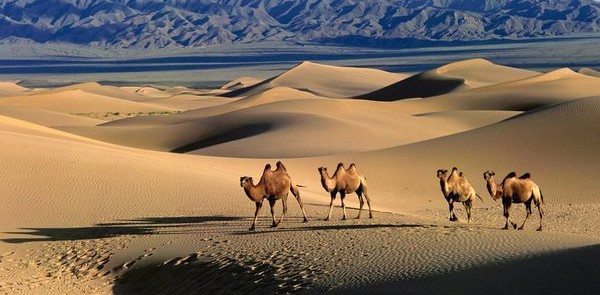
The climate of The Gobi Desert is very extreme. During the year temperatures vary greatly. In summer they can reach 45ºC and in winter temperatures fall to -40ºC. It is the coldest desert in the world. Precipitation is heavy. It occurs in spring and in summer as snow or ice.
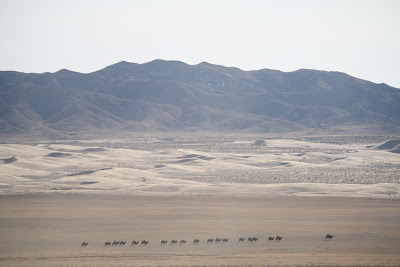
There isn't many nature in this desert. We can only find some shrubs that have adapted to this difficult conditions. The surface is covered by a lot of rocks and sand. Gobi deserts is surrounded by mountains and meadows.
We can find very strange animals such as bactrian camels,takhis, Snow leopards, jerboas(only 11 species in The Gobi Desert),Asiatic ibex, asiatic wild ass, Gobi bear, gray wolf, gold Eagle, musk oxen, plate-tailed gecko, goitered gazelle, and marbled polecat.
Bactrian camel Takhi
Asiatic Ibex Asiatic wild ass
Gobi bear Gray wolf
Gold Eagle Musk oxen
Plate-tailed Gecko Goitered Gazelle
Marbled Polecat

I have chosen this landscape because I think is quite curious and different to the main idea of desert that we have. Also, there are a lot of unusual animal species.
It's the second largest desert in the world.

The climate of The Gobi Desert is very extreme. During the year temperatures vary greatly. In summer they can reach 45ºC and in winter temperatures fall to -40ºC. It is the coldest desert in the world. Precipitation is heavy. It occurs in spring and in summer as snow or ice.

There isn't many nature in this desert. We can only find some shrubs that have adapted to this difficult conditions. The surface is covered by a lot of rocks and sand. Gobi deserts is surrounded by mountains and meadows.
We can find very strange animals such as bactrian camels,takhis, Snow leopards, jerboas(only 11 species in The Gobi Desert),Asiatic ibex, asiatic wild ass, Gobi bear, gray wolf, gold Eagle, musk oxen, plate-tailed gecko, goitered gazelle, and marbled polecat.
Bactrian camel Takhi
Snow leopard Jerboa
Asiatic Ibex Asiatic wild ass
Gobi bear Gray wolf
Gold Eagle Musk oxen
Plate-tailed Gecko Goitered Gazelle
Marbled Polecat

I have chosen this landscape because I think is quite curious and different to the main idea of desert that we have. Also, there are a lot of unusual animal species.
Sunday, 16 October 2016
GEOGRAPHY UNIT 2 : CLIMATE AND BIOGREOGRAPHY IN EUROPE
Here is the vocabulary releted to UNIT 2: THE NATURAL ENVIRONMENT
1.3-CLIMATE AND BIOGEOGRAPHY IN EUROPE:
-Maritime: Type of climate that is found on the western edge, with mild temperatures(0-12ºC) and little temperature variation. The storms which penetrate from the Athlantic create a region of abundant precipitations throughout the whole year.
Flora: Forests (oaks, beeches, pines)
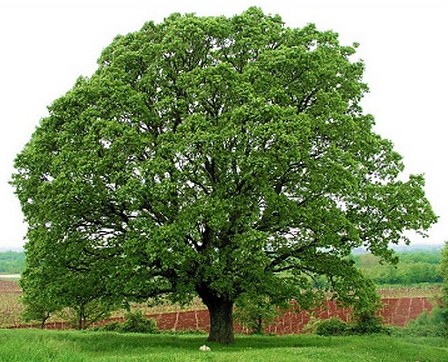
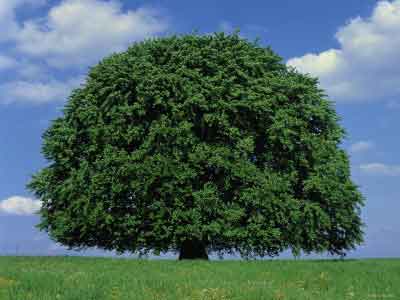

Shrubs, thickets,heather and grassland




Fauna: Deers, foxes,salmon,seals, water birds





1.3-CLIMATE AND BIOGEOGRAPHY IN EUROPE:
-Maritime: Type of climate that is found on the western edge, with mild temperatures(0-12ºC) and little temperature variation. The storms which penetrate from the Athlantic create a region of abundant precipitations throughout the whole year.
Flora: Forests (oaks, beeches, pines)



Shrubs, thickets,heather and grassland




Fauna: Deers, foxes,salmon,seals, water birds





-Mediterranean: This type of climate is found throughout the continent. It has higher temperatures(7-20ºC) as well as lower and more irregular precipitation with vey dry summers.
-Continental: This type of climate has lower temperaturas(0-10ºC) and huge temperature contrasts.
Precipitation is medium or low(snow and summer rains)
Fauna: Brown bear, wolf ,fox,marten,mink, deer, raptors
-Alpine: The altitude causes a decrease in temperatures(-0ºC) and an increase in precipitation. Found on mountain ranges.
Flora: Depending on the height(altitudional zonation), forests and Alpine pastures.
Fauna:Deer, Wolf, bear, chamois,marmot and eagles.
-Polar:This type of climate is located beyond The Artic Circle. It has a Little precipitation, mostly in form of snow, an very low temperatures(below zero)
Flora:Tundra(grass and bushes)
Fauna: Reindeer,seal and whale
Subscribe to:
Posts (Atom)


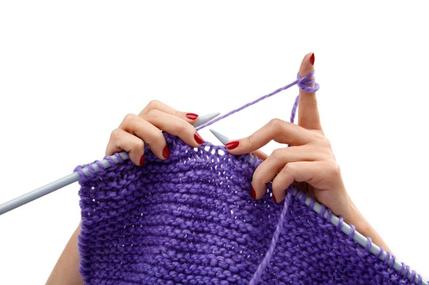
















.jpg/250px-20160208054949!Wildschein,_N%C3%A4he_Pulverstampftor_(cropped).jpg)



